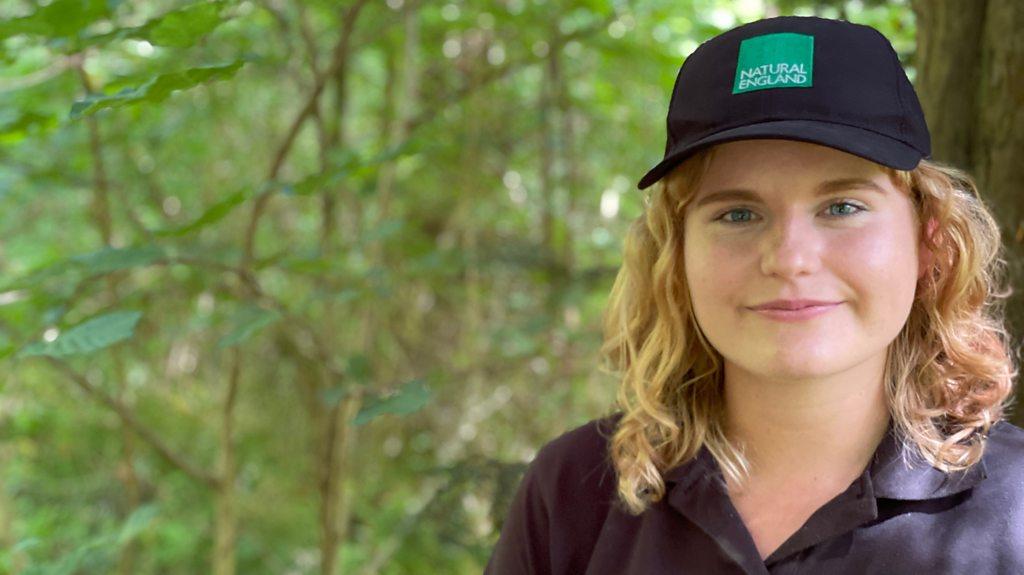Wigan national nature reserve has day of celebration
- Published
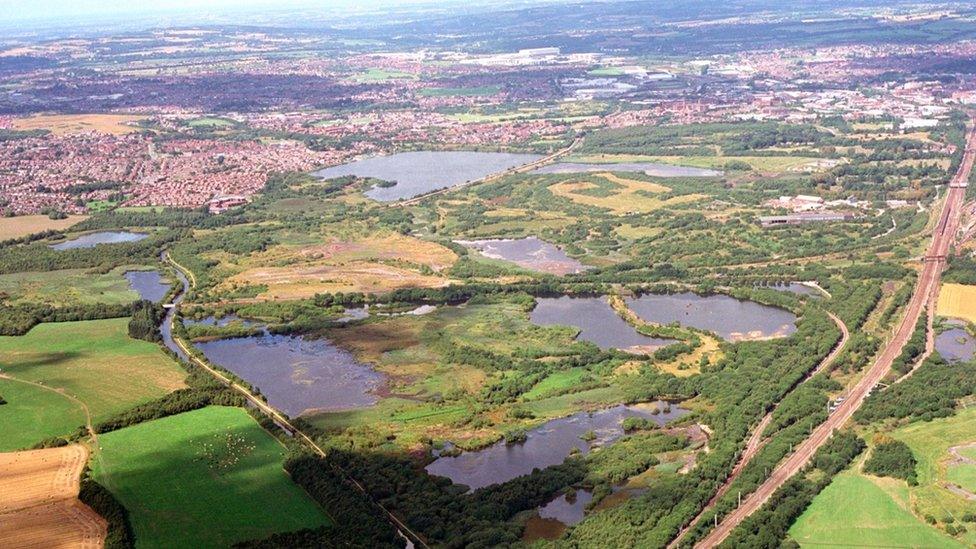
The flashes of Wigan and Leigh national nature reserve spans 738-hectares
An area at risk of becoming a landfill site is now the focus of a day of official celebrations after the site was declared a national nature reserve.
Willow tits, bitterns, water voles and great crested newts are all supported at the Flashes of Wigan and Leigh in Greater Manchester.
The 738-hectare area is now one of the largest urban nature reserves.
The former industrial wasteland used to be home to the now demolished cooling towers of Westwood power station.
The flashes - or lakes - formed because of land subsidence from coal mining.
NNR status (national nature reserve) came into effect last October and means the wildlife and meadows and woodland are all protected.
Wigan is now one of the greenest boroughs in England as the Flashes combine with sites such as Abram Flash and Hope Carr Nature Reserve to form a 5.6 mile (9km) wetland retreat along the Leeds-Liverpool Canal.
Helping to preserve and manage the NNR is a trusty band of volunteers who work under the guidance of the Lancashire Wildlife Trust and owners of the reserve, Wigan Council.
Dean Edwards, who lives locally and gives up his time to cut grass and clear pathways, said: "The reserve is used by everyone and we need to keep it nice and safe for people to not get stung or just attacked by a bramble."

Dean Edwards volunteers to keep the area tidy
He added: "In the heat of the summer, it's really cool which is good for me."
Caitlan Forde, who is on placement as part of her master's degree in conservation management, said working on the flashes was therapeutic.
"Just being outside, learning about the environment is something that I thoroughly enjoy.
"It's good for my wellbeing, keeping me sane, a breath of fresh air," she said.
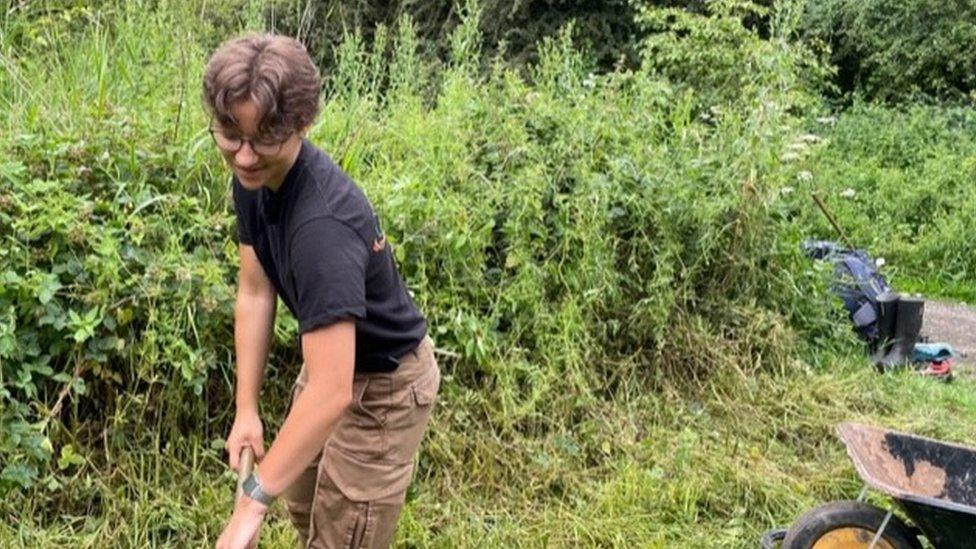
Caitlan Forde is studying conservation management
Three years ago there was a fire in one of the meadows when gorse, heather and trees were burnt to the ground.
Dave Kelly, who manages the reserve for the Lancashire Wildlife Trust, said the fire "went up in seconds".
He urged visitors to be mindful and not to leave litter like glass bottles or cigarette stumps which ignite quickly in warm weather.
Wigan Council's Biodiversity Officer, Kieran Sayer, invited people to visit the rare hybrid orchids which grow well here because of post-industrial ash in the soil, something BBC Look North reported on in 1978, external.
"Please, come out and have a look, enjoy the space. This is really important to local communities," he said.

Why not follow BBC North West on Facebook, external, Twitter, external and Instagram, external? You can also send story ideas to northwest.newsonline@bbc.co.uk, external
- Published5 June 2023
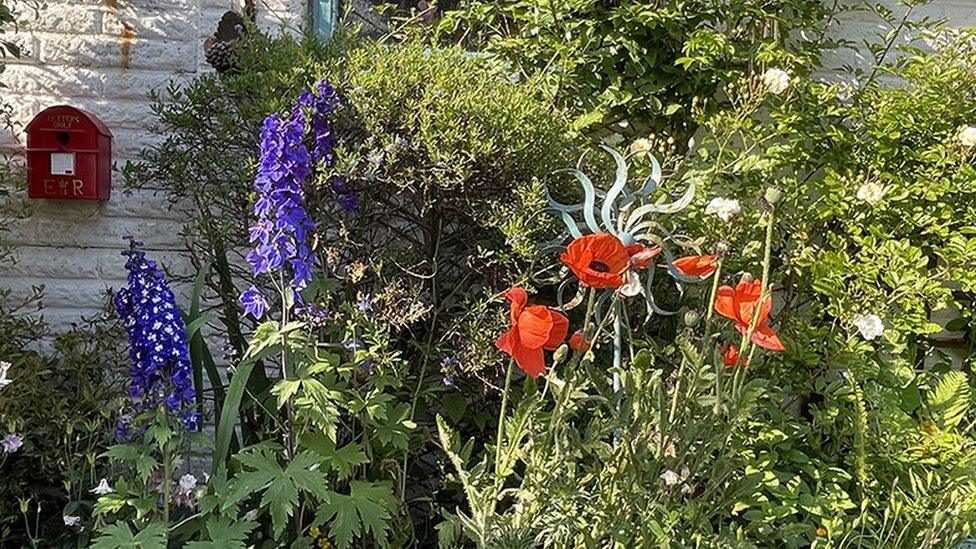
- Published3 October 2022
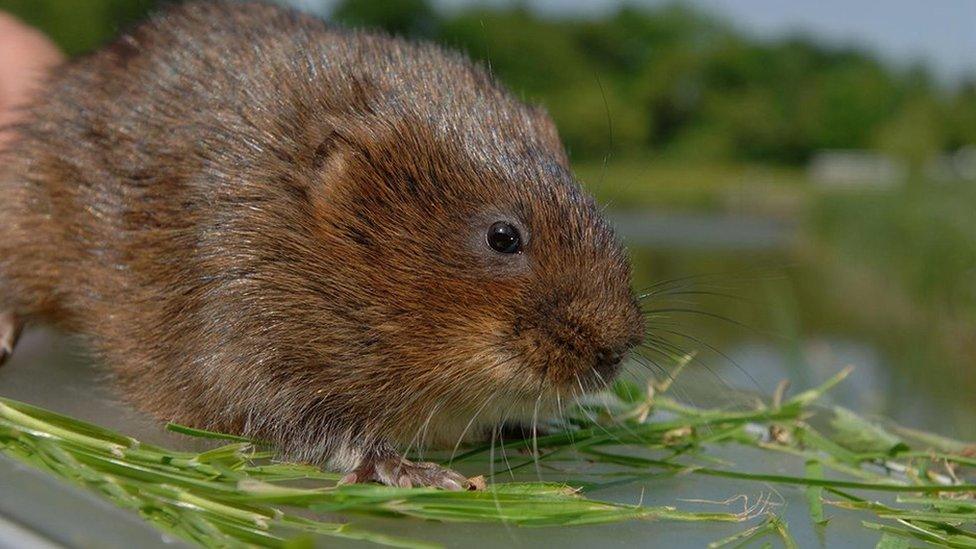
- Published25 September 2022

- Published13 July 2022
